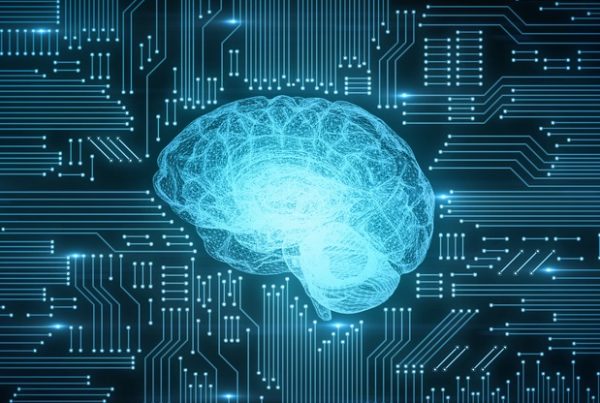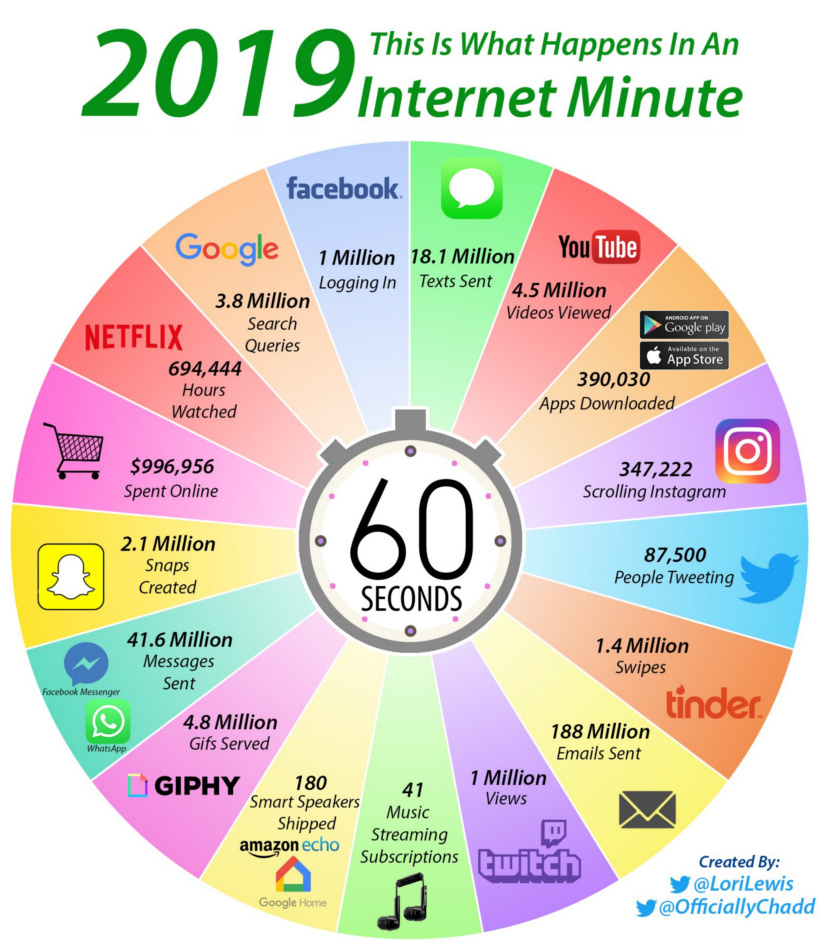“Sugar has been a component within western diets since the sixteenth century. While 500 years ago, the average human would be lucky to come across sugar, it is estimated that today the average Westerner consumes 3 lb of sugar a week. Overall, our sugar consumption per year has risen from 5 lb per person, per year in 1700, to 152 lb per person in 2000. Recent research has found evidence that sugar, while not only bad for our waistlines, can have deleterious effects on our brain. Sugar has been found to shrink areas responsible for important functions such as memory and mood regulation, wearing on the hippocampus.”
Category Archives: Cause & Effect
Scary Times Success Manual

During this season of quarantine as a nation – “Scary Times” is a description that I have heard numerous times recently. Because each of you are important and your life counts, I wanted to give you hope in the following 10 action steps to succeed in Scary Times (Dan Sullivan’s insights)
- Forget about yourself; focus on others – Quarantines and uncertainty can drive people into themselves causing feelings of isolation and helplessness.
- Forget about your commodity; focus on your relationships – Uncertain times can cause people to feel frightened about their jobs. I know our jobs are valuable to us, however, I would suggest that you build your relationships – Family, Friends, Team Members, Suppliers, Clients, and Customers more deeply. You will increase your worth in your job and potential jobs.
- Forget about making the sell; focus on creating value – Exist to add value to people who will multiply value to others.
- Forget about your losses; focus on your opportunities – Sometimes the things we have disappear when taken for granted. For some they may never get over this fact. Rather than focusing on the losses of life, turn your attention to the rapid changing world of opportunities that becomes available today.
- Forget about your difficulties; focus on your progress – New difficulties either defeat and reveal new strengths inside of us we did not know existed. Take advantage of this national quarantine as a time that you will grow more now than ever before.
- Forget about the future; focus on today – It has been said if you want to make God smile tell him what you are doing tomorrow! Faith focuses our attention on the future in Christ Jesus. However Today is what really matters. This moment in time is what matters – what are you doing with it.
- Forget about who you were; focus on who you can be – Do not get caught up in the game of allowing circumstances to define who you are. When things turn for the worse, depression and anxiety can set in. Operate from inside knowledge of hopes, dreams virtues, values. Take advantage from the external confusion to become more directed, focused and motivated to make a difference.
- Forget about current events; focus on your responses – When things are going well we tend to think that we are in charge. It is self-defeating when things turn bad. Successful people know they are not in charge so they work harder at their response to difficult times.
- Forget about what is missing; focus on what is available – Deficiencies are part of a crisis. Focus on the things at hand to gain small micro-wins. Connect with Podcasts, online resources, Zoom calls, etc.
- Forget about complaints; focus on gratitude – Complaining attracts negative people. Be the bigger person – contact five people this week that have influenced your life and express gratitude for their investment. Go for a walk in the neighborhood – Gratitude Walk – giving THANKS as you walk.
Shepherds Advantage provides Servant Leadership that helps people close the gap between where they are and where they want to be. Shepherds Advantage closes that gap by providing Leadership Development, Key Note Speaking, and Executive Coaching. Shepherdsadvantage@gmail.com
Unbeatable Mind

Forge Resiliency and Mental Toughness to Succeed at an Elite Level
Mark Divine states that his purpose for the book is that you are capable of so much more than you think you are, but you have been kept in the dark about this potential your entire life. As a Navy Seal the author states that the principles of this book are not about being hard-core but rather about how to perform at your peak in any domain, whether you are a mom, dad, SEAL, student, or CPA.
The first premise of the Unbeatable Mind is that you must win the in your mind before you step into the arena of life. The simple truth is that you must control your mind and establish a winning mind-set before we fight in life’s game. Consider Divine’s five-steps to accomplish a controlled mind.
- Focus your mind and stop it from running all over the place. In order for you and I to live the uncommon life we must master uncommon habits of life. Enter Spiritual Disciplines! I have read that we have a drunk monkey in our mind that runs from thought-to thought-to thought-to thought. FOCUS NOW!
- As you discipline your mind you will connect with the internal witness of the soul. Think of it this way. You can either sit under a waterfall or step back a number of yards and admire the falling water. One perspective is that you are being pounded by water and noise, the other allows reflection and amazement. Stop the craziness of your life to listen to the internal witness – you may be missing out on a grand challenge and message.
- Challenge your unfettered mind with with the supper food of positive regard and passion as a winner. Enter, “We are more than conquerors through Him who loves us…”(Ro. 8:37).
- Activate a DAILY training plan to move you toward your internal vision for life – move toward my “just cause!”
- Surround yourself with like-minded people that will help you succeed every time.
Forge resiliency and mental toughness to succeed at an elite level. This is mastering uncommon disciplines in order to live an uncommon life.
Switching Default Settings

We have been discussing Digital Addictions and how we need to control their function in our lives rather than being controlled by them. This blog article will focus upon switching our default settings from heavy digital usage to developing opportunities for solitude.
To begin our thought we need to understand that Solitude is not loneliness, negativity, or isolationism. It has been said that we cannot see things in perspective until we cease to hug them in our bosom. So that we do not miss the obvious, times of solitude means the complete absence of digital distractions for a designated time period.
I am including a half-day Spiritual Retreat outline for you to follow. I am a strong proponent for regular Spiritual Retreats during the calendar year. I started this practice in my life over 20+ years ago. Time will not permit me to discuss the benefits I have received from these regular times of solitude.
One of the benefits of solitude is that Autobiographical coherence is achieved. This means that we connect with our recent past in order to reconcile unfinished business or problematic relationships for a preferred future. Stay grounded and connected to your present relationships and environment. Other benefits of solitude would be:
Clariety
Creativity
Emotional Balance
Moral Courage
While this year is still quite young, resolve to set aside specific times for Spiritual Retreats or even establishing micro-moments weekly in which you would be able to un plug from digital distractions to have some quiet moments of thoughtful reflection.
Suggested Reading:
Bored and Brilliant – Manusch Zomorodi
Lead Yourself First – Raymond Kethledge & Michael Erwin
Unsubscribe – Jacelyn Glei
Deep Work – Cal Newport
Deep Workflow

Multi-tasking is not a skill set that you want or need in your capabilities of leadership. You are not hard-wired to multi-task efficiently and safely. A person that texts while driving is said to be 6x more dangerous than a drunk driver. WOW!! That is a scary thought!
Let’s conduct a small experienement. You will need a Stop-Watch for this exercise. Here are the instructions to follow:
- Count 1-10 and then record your time TIME:
- Recite the Alphabet A – J and record your time TIME:
- Now recite these two list alternating and record your time (1A, 2B, etc) TIME:
Did you notice a difference in your time. You simply are not wired to multitask efficiently and safely. The issue at hand in leadership is to get into a “Deep Workflow” that allows your best content/ideas to come out. Distractions destroy deep thought and workflow. It is also reported by neuroscience research that when you are in a deep workflow and are interrupted, it will take you 15-20 minutes to recover and get back into that deep workflow before the interruption. WOW again!
Here is a journaling suggestion to help you recognize when the interruptions occur and the circumstances that aid in working at a deeper level. Here are a couple of suggestions to assist your discovery.
First of all begin to journal your thoughts on when you tend to multitask. Is there a cause, time of day or day of the week that triggers multitasking behavior? Is there a limiting belief within yourself that you are convinced that multitasking is necessary for survival? What have you been taught that you need to unlearn in order to get into a deep workflow?
Secondly, journal your thoughts and circumstances of what is occurring when you do get into a deep workflow. Did you place electronic devices out of reach? Did you turn off notification reminders? Is there a place that allows you to work more deeply?
Multitasking allures us into thinking this is the ultimate way to peak performance. In reality it represses us and keeps us in the shallows. Our creativity is suppressed and the best version of ourselves never manifests itself to the world. It is time to remove the digital distractions, get into that special place that allows deep work to flow, and change daily habits that are hindering our best creativity.
Conquering Addiction

We are continuing our Blog series on Digital Addiction. In this blog article I specifically want to draw attention to conquering our digital addiction. The very first step in recovery is to admit that we are addicted. Ironically, so is every other person in society. Be bold and step forward and declare “I am addicted to digital technology.” It has been said that it is no measure of health to be adjusted to a sick society (unknown).
Below is a list of digital devices and services. Beside each of these, take a few minutes to journal why you may have unhealthy tendencies in the use of these devices and services? Describe your addictive behavior.
Once you have completed this assignment now journal your thoughts about any “bright lights” or boundary markers that you feel would be helpful in the conquering of your addictive behavior (I.e. Digital Sunset). Write out your thoughts clearly and concisely.
This is a simple exercise to bring us face-to-face with our own behavior. The disciplined mind is a victorious mind.
- Devices
- Computer
- T.V.
- Gaming
- Phone
- Other
- Services
- Other
Addicted Users

We are continuing our Blog series on Digital Addiction. In this blog article I specifically want to draw attention to the reality of being “ADDICTED.” To show you the magnitude of this industry understand that companies are spending approximately $7 trillion annually on studying how to attract you deeper and deeper into the digital world. That is a staggering amount of money. For additional insight I am linking the 60 Minutes program on Brain Hacking. Take the time to review this program.
I find it interesting that only Silicon Valley and Drug Dealers refer to other people as “USERS.” Tristan Harris, a former Google Ethicist stated of the digital engineers that they are Tabaco farmers in t-shirts not just trying to get your lungs, they want your soul. It is an understatement to say that we are literally overwhelmed by push notifications, chirps, burps, and chimes.
Is it any wonder the Millennials and Gen-Z-ers are without a doubt the most digitally connected and the loneliest of all generational groups? Perhaps we have been hacked and we are addicts. The first step of recovery is to admit that we are addicts. We regulate by age the use of Tabaco and alcohol, but not dopamine and cortisol. To my non-profit collogues who prepare weekly teaching and sermon materials, I caution to us regarding the over-worked mind that has been hit by dopamine and cortisol multiple times daily. Is our mind clear? Are we writing and delivering our thoughts from a context silence and solitude? If our message is not compelling, all of the digital technology in the world will not compensate.
Digital Addiction

The purpose of this series of blogs regarding digital addiction is not rail and complain about the use of technology. Our digital devices and service providers are nothing more than tools that can assist our life greatly. Throughout the history of man, tools have been used to assist human beings in their quality of life, So let us agree on this point.
But we must also come to terms that the use of this technology is controlling our lives, social interactions, friendship connections and even dating in ways that we could not have imagined. So, it is time to do a serious evaluation regarding the use of digital technology in our daily routine. Below are some instructions to evaluate your usage. Take a few minutes to create this worksheet on a blank piece of paper. Afterwards review what you have discovered about yourself.
Take a few minutes to list the various devises that you use on a daily basis that is not work related. Once you have completed this exercise, below the first list create another list of services that controls how you interact with others that is not work related (I.e. FB, Twitter, Instagram, etc.).
In a second column write out a brief description of the device and service provider beside each item listed.
In a third column write out a one or two description that describes why you need this device in non-work-related activity.
The Spartan Way

As you prepare for the New Year 2020, consider these 10 Spartan Qualities that Joe De Sena teaches in his book, The Spartan Way. Learn to live your life with a “long-view” in mind. Start working on these qualities one-step at a time.
Self-Awareness: Know who you are and who you are not. If you don’t, you’ll be confused daily.
Commitment: Stick to it because the world is filled with people who don’t. You’re better than that.
Passion: If you’re not passionate about what you do, you’re not going to be great at it. Take things seriously and learn to be passionate.
Discipline: Set your rules and stick to them. Be disciplined about it.
Prioritization: Deal with the important things—important being what you define as important—first.
Grit: Get gritty. Break out of your comfort zone. Do the hard, scary stuff. Find your passion and persevere.
Courage: This is the ability to stay focused and work relentlessly with both intensity and passion through virtually anything, especially through failure.
Optimism: See the world as you want it to be, not as it is. Be ever hopeful.
Integrity: If you’re not honest with yourself and others, then what are you?
Wholeness: Live the life of a complete and whole Spartan.”
Conquer Your Digital Addiction
Starting with this last Blog Article of 2019 and beginning in 2020 I am going to focus upon Digital Addictions and how this impacts our daily work and our most important relationships. Watch for our upcoming blogs for more information that will shock you in some ways but will encourage you to make significant changes in 2020.
Study the infographic below to allow the power of the digital world to sink into your conscious thinking. Question: What do I need to change now?
